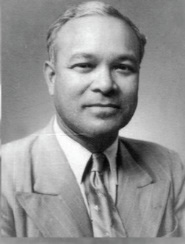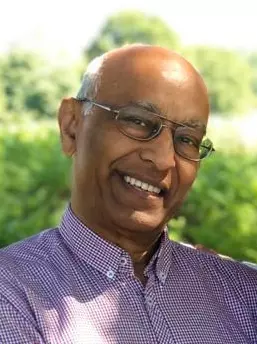 “During the Commonwealth Games in Delhi, 2010, there have been extensive discussions and media campaign for conferment of Bharat Ratna favouring certain sports personalities. Strangely, not once did the Indian media, print and/or electronic, ever recall the role and sacrifice of the legendary hockey player Jaipal Singh during the CWG or in the post-CWG period”, laments a former Vice-Chancellor, A.K. Biswas.
“During the Commonwealth Games in Delhi, 2010, there have been extensive discussions and media campaign for conferment of Bharat Ratna favouring certain sports personalities. Strangely, not once did the Indian media, print and/or electronic, ever recall the role and sacrifice of the legendary hockey player Jaipal Singh during the CWG or in the post-CWG period”, laments a former Vice-Chancellor, A.K. Biswas.
Truly, very few Indians could dare to say they have achieved his distinctions: Oxford-graduate, Olympian, Sports-writer, Constituent Assembly Member, Educationist and a Social Activist, who could lay the foundation for a State in India. (Jharkhand)
Jaipal Singh Munda was born in a Bihari Adivasi family on 3 January 1903 in Tapkara village in the Ranchi district of Jharkhand. He went to St Paul’s School in Ranchi (Bihar), founded by the S.P.G. Mission in 1875. In this school, Jaipal came under the wing of the Principal, Canon Cosgrave. He received his baptism in November 1918. The Canon having retired from the Ranchi school to take up the parish of Darlington, took along with him his affectionate ward, which was an iconic turn in the life of young Jaipal. (see Santosh Kiro’s biography)
Jaipal completed his matriculation at St. John’s College, Oxford, in 1922, and graduated in Economics Honours in 1928. It was in St. John’s that Jaipal’s leadership qualities and his athletic prowess began to blossom. He was elected Secretary in 1924 and then President in 1925 of the St John’s College Debating Society. He represented the college football XI in 1925-6, and the college hockey XI in the college. He was also a member of the University Hockey XI in Varsity matches from 1924 to 1926, donning a ‘Hockey Blue’. Innovative that he was, Jaipal Singh started the Oxford Hermits – a sports society for the ‘Asiatics’ in Oxford –who mainly played hockey. Even while he shone as a hockey star, Jaipal Singh proved to be a versatile sports-journalist, contributing to the leading newspapers of the day on hockey.
After graduating from St. John’s, Oxford, Jaipal Singh took the Indian Civil Service (ICS) examinations and cleared the written test and the interview. But when he was preparing for the ICS training, Jaipal got the pleasant news that he was selected for the Olympics in Amsterdam, not just as a player, but as captain too. This created an acute dilemma in him–of whether to participate in the Olympics or to complete the ICS training. He took the right decision of representing the nation in the Olympics, and delayed his ICS training. Unfortunately, he had to quit the ICS, as he was required to serve an extra year, even after winning the Olympic gold.
The year 1928 was a watershed moment for Jaipal. Not only did he graduate from Oxford, but he was asked to captain the India Hockey Team at the Amsterdam Olympics. The Indian Hockey Team for Amsterdam had the hockey-wizard Major Dhyan Chand, who scored 14 goals in the tournament. As a defender, Jaipal was rock-solid throughout. Unfortunately, Jaipal could not play in the final, as there were serious differences between the coach and the captain. Nevertheless, India won the gold medal, defeating Holland by 3-0 goals. A highlight was that the Indian team had won all their games without conceding a goal.
Basking in the Olympic glory, Jaipal Singh returned to England. He was personally congratulated by the then Viceroy of India, Lord Irwin, for his excellent captaincy and the team performance.
The disappointment of ICS episode did not put down Jaipal. He joined the Royal Shell Dutch company, and after probationary period in London, he was posted in Calcutta. Before taking up this assignment, Jaipal called on his mentor Canon at Darlington: “Canon gifted him with a Greek New Testament and St. John’s Gospel. Thus, Canon had been everything to Jaipal for eighteen years, since 1910”. (Santosh Kiro, p.32)
In Calcutta, Jaipal Singh met many British officials, clergymen and Indians through his contacts from his time in Britain. He married Tara Majumdar, the daughter of P.K. and Agnes Majumdar and grand-daughter of W.C. Bonnerjee, one of the founders of the Indian National Congress. Jaipal also served as the Secretary of the Bengal Hockey Association.
Jaipal Singh’s life was never a bed of roses. He faced many a challenge in his career throughout. “When he returned to India and took charge as a principal at the Rajkumar College, Raipur, endeavouring to impart holistic education, he was forced to leave because the anti-tribal Maharajas whose sons studied there wanted to have an English principal. So, he left for Gold Coast, Africa for a teaching assignment”. (see Ankita Apurva) He later moved to Rajputana where he was appointed the Colonisation-Minister and Revenue Commissioner in the Princely State of Bikaner. His unimpeachable performance as the Minister and Revenue Commissioner earned him further rewards. He was elevated to the post of Foreign Secretary of the State of Bikaner. But Jaipal was destined to play bigger role at regional and national levels.
Jaipal Singh felt a profound urge to do something for his people, the neglected and exploited tribal communities in Chhota Nagpur in Bihar. The Governor of Bihar and Orissa, Sir Maurice Hallet, told him: “Don’t waste your time. Go to Ranchi. A movement of the Adivasis has just started. You have wandered all over the world serving others. Now do something for your own people in memory of Canon”. (Santosh Kiro, p.33) Hallet even offered membership of his Legislative Council to Jaipal. But he politely declined it.
By the end of 1938, when Jaipal went to Ranchi, he received tumultuous welcome by the tribal community. He was immediately accepted by the Adivasis as their Marang Gomke. (Supreme Leader) This ‘Christian Munda’ was accepted by the masses as a ‘Divine gift’ to their community, and Jaipal easily fitted into the structure of the new Adivasi politics. (Santosh Kiro, p.34) He formed the Adivasi Mahasabha, an organization which fought for the rights of the Tribal people in Chota Nagpur Plateau in the following decades.
Yet another turn in Jaipal’s career was his role in National politics: “In 1946, Singh was elected to the Constituent Assembly from Bihar. He was one of the few independent candidates to have been elected to the Constituent Assembly, a platform that he would use to voice the concerns and promote the interests of tribal people across India”. (Constitution of India webpage) On 19th December 1946, Jaipal made a most impassionate speech in the Assembly: “I am proud to be a Jungli, that is the name by which we are known in my part of the country…You cannot teach democracy to the tribal people-you have to learn democratic ways from them”. (Santosh Kiro, p.65)
After Indian independence, Adivasi Mahasabha got bigger and transformed into the Jharkand Party, whose aim for a separate Statehood was realized on November 15, 2000 when Jharkhand was designated a separate state from Bihar. The Christian Contribution to Modern India movement that Jaipal Munda started in late thirties turned a full cycle with formation of Jharkhand State. ‘Jharkhand’ was the term Jaipal himself coined for a Tribal State. (Radhika Bordia)
The Union Minister of Tribal Affairs Arjun Munda paid this tribute in 2020: “The role played by Jaipal Singh Munda for the tribal society is unforgettable. As a member of the Constituent Assembly, he put the identities of the tribals extensively before the Framers of the Constitution. And this is the reason that the tribal have different constitutional rights mentioned in the Constitution”. (The Pioneer)
Former Governor and public intellectual Gopalkrishna Gandhi, on the eve of the Hockey World Cup being staged in Birsa Munda Stadium in Odisha, paid this befitting tribute: “Jaipal Singh’s example in hockey and politics comes alive now as it has not for a long time. His spirit rejoices in Birsa Munda Stadium. It is yet to rejoice in the prosceniums of our public life”. (Gopalkrishna Gandhi)
Jaipal Singh died on 20 March 1970 in Delhi. The Government of Jharkhand named the grand games complex and games village built in Ranchi as the Singh Munda Games Complex. It also instituted ‘Marang Gomke Jaipal Singh Munda Overseas Scholarship’ (MGJSMOS), through which S.T. students pursuing higher studies in U.K. could benefit.
Surely, Jaipal Singh deserves much more recognition at the National level.
Sources
- Santosh Kiro, The Life and Times of Jaipal Singh Munda, New Delhi: Prabhat Prakashan, 2018
- https://www.open.ac.uk/researchprojects/makingbritain/content/jaipal-singh
- A.K. Biswas, “Jaipal Singh Munda” in Mainstream, Vol. L., No. 8, February 11, 2012, www.mainstreamweekly.net accessed on 28 March 2022.
- https://www.constitutionofindia.net/constituent_assembly_members/jaipal_singh accessed on 31 March 2022.
- Ankita Apurva, “Proud to be a Jungli: When Jaipal Singh Munda Roared in the Constituent Assembly” in Live Wire, The Wire, 9 August 2019.
- Radhika Bordia, “A Jungli in the Constituent Assembly: Jaipal Singh Munda” in www.ndtv.com dt. January 26, 2017 accessed
on 17 January 2023. - “Jaipal Singh Munda remembered on his 117th birth anniversary”, article in The Pioneer, Ranchi, 4 January 2020.
- Gopalkrishna Gandhi, “In Ourselves We Trust” in The Economic Times, 17 January 2023.
- Photo: Wikimedia commons/public domain.
Included on this website by kind permission of the copyright holder – i.e., Dr. J. Kalapati, the author of the book. Christian Contribution to Modern India, vol. 1. may be bought at the Amazon website by clicking here

